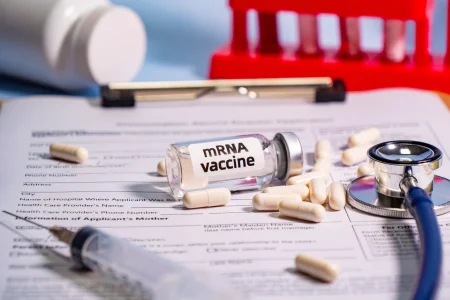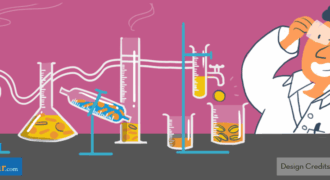Vaccines have always stood as one of humanity’s greatest scientific triumphs — silent sentinels protecting billions from diseases that once decimated populations. From smallpox to polio, vaccines reshaped the course of history, transforming medicine and life expectancy alike. But in the wake of COVID-19, the world’s understanding of vaccines has changed forever.
The pandemic didn’t just accelerate vaccine innovation; it redefined what’s possible. Messenger RNA (mRNA) technology, global collaboration, and real-time data sharing have opened the door to an entirely new era — one where vaccines are not just reactive, but personalized, predictive, and precision-based. The next generation of vaccines may not only prevent pandemics but tailor protection to individual genetics, environments, and lifestyles.
From Pandemic Response to Precision Prevention
The success of mRNA vaccines against COVID-19 marked a turning point in medical science. What once took decades of development happened in under a year. But the true story of that breakthrough isn’t just about speed — it’s about flexibility.
Unlike traditional vaccines, which use weakened or inactivated viruses, mRNA vaccines work by instructing the body’s own cells to produce harmless viral proteins, training the immune system without the need for the pathogen itself. That makes them faster to design, easier to modify, and potentially applicable to a wide range of diseases — from influenza to HIV, from cancer to autoimmune disorders.
Scientists are now envisioning a future where vaccines are not only mass-produced but custom-tailored to individual immune profiles. This is the promise of precision medicine — using genetic and molecular data to create interventions that match a person’s unique biology.
The Rise of mRNA and Beyond
If the COVID-19 vaccine rollout was the proof of concept, the years since have been the research renaissance. Moderna, Pfizer-BioNTech, and other biotech innovators are testing mRNA-based vaccines for RSV, malaria, and even certain cancers.
One of the most exciting frontiers lies in cancer vaccines. Unlike traditional vaccines that prevent infections, cancer vaccines aim to help the immune system recognize and destroy tumor cells. Early trials in melanoma and pancreatic cancer show promising results, where patients’ tumors are genetically sequenced to identify mutations, and personalized mRNA vaccines are designed to target them.
This approach represents a dramatic shift — from one-size-fits-all medicine to targeted immunotherapy. It’s not about preventing a single virus but about training the immune system to respond to a specific threat in each individual.
And the innovation doesn’t stop there. Researchers are exploring self-amplifying RNA (saRNA), a next-generation technology that could produce stronger immune responses with smaller doses. Others are working on microneedle patches, which could make vaccine delivery painless, portable, and more accessible in low-resource regions.
Lessons from a Global Crisis
The pandemic exposed weaknesses in global health infrastructure but also showcased humanity’s capacity for rapid scientific collaboration. The global race to develop COVID-19 vaccines united pharmaceutical companies, academic institutions, and governments in ways never seen before.
Yet, it also raised profound questions about equity, trust, and access. While some nations vaccinated nearly their entire populations, others were left waiting — a stark reminder that innovation without accessibility risks deepening inequality.
As the world moves toward more advanced and personalized vaccines, the challenge will be ensuring that progress doesn’t come at the cost of inclusivity. Precision medicine must also mean equitable medicine. The future of vaccines cannot belong only to those who can afford genetic sequencing or advanced healthcare systems.
The Role of AI and Big Data
Artificial intelligence is emerging as a crucial ally in vaccine innovation. AI algorithms can analyze massive datasets — from viral genomes to human immune responses — identifying patterns that humans might miss. During the COVID-19 pandemic, AI tools helped scientists predict mutations and accelerate trial designs.
In the future, these tools could enable real-time vaccine development — identifying new pathogens within days, designing vaccines within weeks, and distributing them within months. Combined with global data-sharing networks, this could mark the end of the long lag between outbreak and immunity.
Imagine a world where your wearable device or health app continuously tracks biomarkers, immune activity, or exposure risks — alerting you when it’s time for a personalized booster tailored to your exact needs. It sounds futuristic, but the foundation for that future is already being built.
Beyond Infection: The Expanding Definition of Vaccination
The idea of what constitutes a “vaccine” is evolving. Researchers are now exploring vaccines for chronic diseases such as Alzheimer’s, diabetes, and even addiction. For instance, experimental “anti-drug” vaccines are being developed to block the effects of substances like nicotine or opioids by training the immune system to neutralize them before they reach the brain.
Meanwhile, microbiome vaccines aim to regulate gut bacteria to combat inflammatory and metabolic diseases, while autoimmune vaccines could one day teach the immune system to stop attacking the body’s own tissues.
In essence, the concept of vaccination is broadening — from fighting infections to modulating the immune system itself. The line between vaccines and therapeutics is blurring, ushering in a future where immune engineering becomes a cornerstone of everyday medicine.
Public Trust in a Post-Pandemic World
For all its scientific brilliance, the COVID-19 era also underscored a critical truth: vaccines are not just a medical achievement but a social contract. Public trust remains the linchpin of any successful immunization campaign.
Misinformation, political polarization, and skepticism have shown how fragile that trust can be. As vaccines become more personalized and technologically complex, transparent communication will be more important than ever. The next great innovation in public health may not be scientific — it may be rebuilding belief in science itself.
The Future Is Personal, Preventive, and Global
The trajectory is clear: the future of vaccines lies at the intersection of genomics, artificial intelligence, and global collaboration. The same tools that helped sequence a virus in record time and produce a vaccine within months will soon allow medicine to be preventive, not reactive — customized, not generalized.
In that world, pandemics may still emerge, but our ability to respond will be faster, smarter, and more targeted than ever before. Vaccines won’t just protect populations; they’ll optimize individual immune systems, offering defense tailored to each person’s biology and risk profile.
A Revolution Beyond the Needle
The story of vaccines has always been one of progress — from crude inoculations in the 18th century to mRNA marvels in the 21st. But the next chapter will be something entirely new: a world where vaccines are no longer just tools of defense but instruments of design — crafting health outcomes at the molecular level.
As the line between biology and technology blurs, humanity is stepping into an era where immunity itself can be engineered. The vaccine of the future won’t just save lives — it will redefine what it means to live well.




